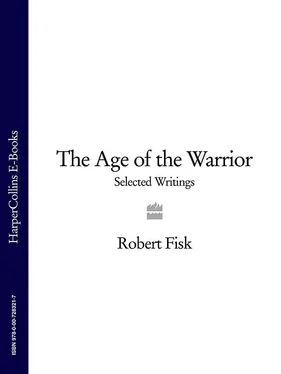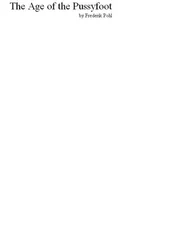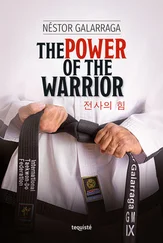That’s the kind of anger that journalists are permitted to deploy, the anger of righteousness and fear. It is the language of our masters, the Bushes and Blairs and Browns, the Kinkels and the Sarkozys and, of course, the Mubaraks and the King Husseins and the Arabian kings and emirs and the Musharrafs and, indeed, anyone – even the crazed Muammar Ghadafi of Libya – who signs up to the war of Good against Evil. For journalists, this has nothing to do with justice – which is all the people of the Middle East demand – and everything to do with avoidance. Ask ‘how’ and ‘who’ – but not ‘why’. Source everything to officials: ‘American officials’, ‘intelligence officials’, ‘official sources’, anonymous policemen or army officers. Above all, show respect. For authority, for government, for power. And if those institutions charged with our protection abuse that power, then remind readers and listeners and viewers of the dangerous age in which we now live, the age of terror – which means that we must live in the Age of the Warrior, someone whose business and profession and vocation and mere existence is to destroy our enemies.
As Middle East Correspondent of The Independent of London, I endure a charmed but dangerous life. I travel to Iraq, Afghanistan, Syria, ‘Palestine’, Israel. I live in Lebanon. I have covered, over thirty-two years in the Middle East, eleven major wars, countless insurgencies and more massacres – more sheer bloody slaughter – than I care to count. And I have a newspaper, The Independent , which also encourages me to tell it how it is, to report not the clichés and blusterings of ‘think tanks’ and ‘experts’, but what I as a reporter see and believe. Each Saturday my editor, Simon Kelner, allows me to let rip in a column in which I can – like a journalist in paradise – swim in any direction in the sacred pool, examine any monster, visit any graveyard, talk to any murderer or friend, examine any document, write about any empire, look back even at the history of my own very ordinary English family in which my dad was a soldier in the First World War, in which his father was first mate on the giant tea clipper Cutty Sark . And I can say what I think.
It is a privilege and it is a trust – especially in a country, Britain, where the system of democracy has been so badly stained (principally by former prime minister Blair) that the press has come to play the role of parliamentary opposition – but it must be used, I think, with vigour and fury and cynicism, yes, and gentleness and, sometimes, with despair. This book therefore reflects my life as a journalist, largely over the past five years, but it also shows the need, I believe, to speak out against the fraud and injustice of a world in which consent has become automatic, in which criticism, however mild, is regarded as subversive. This is not my battle. I have colleagues who try to do what I try to do: to call our masters liars and mock their mendacity and their provable untruths and to bite them – hard – for the way in which they have damaged and soiled our world. I am not sure if history has a special integrity. But we should show an integrity towards the history which we are now creating in the hell–disaster of the Middle East.
I have sometimes strained the patience ofmy readers. Several have complained that they found my constant references to ‘Lord Blair of Kut al-Amara’ repetitive or childish. One of our Independent readers complained to the Editor, Simon Kelner, in October of 2007 that Fisk:
should be more careful with his words. One thing I certainly cavil at is his snide reference to our current Prime Minister, whom he delights in calling Lord of Kut al-Amara. Not all his readers will understand his reference, but I do… It was a terrible tragedy when it happened in the Great War, and even worse when the POWs had to march to Turkey. Surely Fisk must have read about it…
Indeed, I had read of it. Kut al-Amara was the greatest British defeat at the hands of a Muslim army – the Ottoman Turks – in the First World War, a humiliating collapse of imperial power after Major-General Charles Townshend took 13,000 men up the banks of the Tigris in a vain attempt to reach Baghdad. This comprehensive military disaster – Townshend was surrounded at Kut and watched his captive soldiers set out on a death march to Turkey – seemed to me to sum up both the arrogance with which Tony Blair took his country to war and the swamp in which our army found itself in Iraq. So Blair remains, for the most part, ‘Lord Blair of Kut al-Amara’ in these articles. *A columnist must sometimes write with a cartoonist’s strokes.
Books occasionally write themselves. Reading the proofs, it became clear to me that my own journalism over the past five years has concentrated more and more on the sheer hypocrisy of the political–military–journalistic nexus of power which is deployed to fool us, to persuade us to follow policies which are contrary to our national interests and against all morality. Indeed, the use of power to terrorise us – to put more fear in our hearts than any ‘terrorist’ is capable of doing – seems to me to be one of the most frightening and damning characteristics of our age.
The blood of Iraqis flows through these pages, but The Age of the Warrior is neither a story of unrelieved carnage nor of unremitting journalistic rage. I examine the use and misuse of words, the influence of the cinema and of novels on our age, the need to create some form of beauty even amid war. You will meetmy former Latin professor, the old boys ofmy English school, you will walk round the mass grave of the Titanic’s passengers in Canada and read the battle honours in the oldest church in Wellington, New Zealand, and you will sit beside Mstislav Rostropovich, the greatest cellist of his age, as he travels to a Beirut still ravaged by war, his ‘wife’ – his most precious musical instrument – strapped beside him in seat 1K. And you will meet again my soldier father Bill who bravely refused to execute a comrade in the First World War – an Australian who did indeed stand before a firing squad but who died, it now turns out, with an extraordinary secret in his heart.
*By extraordinary irony, Amara was the first city that British troops abandoned to insurgents. Under a ‘gentleman’s agreement’ in 2006, UK forces were permitted a single afternoon patrol through the city in return for handing over power to armed tribal leaders. The British could thus claim they had not retreated, while at the same time giving up all responsibility for the tens of thousands of local inhabitants: a truly Blairite solution.
Collections of this kind are bound to be a patchwork, but in this case I have found a meaning in the compilation. I have deliberately allowed some few repetitions to preserve the integrity of articles as they were originally published. But a journalist’s life – however specialised – revolves around a theme. And in this case, my columns have returned, again and again, to the semantics of politics and war and the need to expose the needless mass suffering that we inflict on our fellow humans. Death, as usual, walks through these pages until, at the end, Denise Epstein – surviving daughter of that wonderful Jewish–French novelist Irène Némirovsky, who perished at Auschwitz – warns us of the ‘dilution of memory’. It is this dilution, this wilful refusal to see and recognise cruelty, which will push us back into the inferno.
Beirut
February 2008
CHAPTER ONE
War is a paradox for journalists. Millions around the world are fascinated by the mass violence of war – from Shakespeare to Hollywood – and are obsessed with its drama, the cruel, simple choice it offers of triumph or defeat. Our Western statesmen – not one of whom has witnessed or participated in a real conflict and whose only experience of war comes from movies or television – are inspired by war and thus often invoke religion, or ‘good and evil’, to justify its brutality. If Shakespeare understood that human conflict was an atrocity, the history of the last century in the Middle East – leading irrevocably to the attacks of 11 September and thus the assault on Afghanistan and the preparations for an even more ambitious subjugation of Iraq – suggests that our politicians and our journalists are able to overcome this scruple. The peoples of the Middle East – though not their leaders – often seem to have a surer grasp of reality than those who make history, a superb irony since ‘we’ usually blame ‘them’ for the violence with which we are now all supposedly threatened.
Читать дальше












